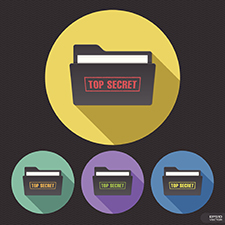 Job interviews can be a little nerve racking. Will the interviewer like me? What if I say something that sounds stupid? What if I don’t know how to answer a question?
Job interviews can be a little nerve racking. Will the interviewer like me? What if I say something that sounds stupid? What if I don’t know how to answer a question?
To help you gain your interview confidence, take a deep breath and follow these seven tips for conquering your fears and de-stress before your job interview.
1. Get your portfolio together.
Don’t scramble to put this together the night before. No one knows your work better than you, so be your biggest advocate on interview day and have a stellar portfolio. While getting your portfolio ready, showcase your best projects. And, be sure to include plenty of copies of your resume in case someone unexpected joins the interview. On your resume, make sure it’s easily laid out for readability, organized, shows your training/education background, and lists your job history. Also, include a list of references for extra bonus points.
2. Prepare for interview questions.
Expect to be asked questions like:
- Tell me about yourself.
- Why should I hire you?
- What are your strengths and weaknesses?
- What can you bring to the team?
- Do you have any questions about the job?
These are typical questions interviewers use to learn more about you. A few days before your interview, practice answering these questions and watch yourself in the mirror so you can see your facial expressions or ask a friend to listen and give you feedback.
3. Do your research on the company and the position.
Not only will you need to be prepared to answer questions about yourself, but you should also be able to speak about the company and the position you’re seeking. What do you know about them? What do they do? Find out when they were founded, how many locations they have (if more than one), and some interesting facts about the organization.
Also, be able to share about the skills you can bring to the job. What are some specific duties you’re interested in? How do your skills match the job? Also, come up with questions you have about the job. How do you see this position growing with this company? What skills does the perfect candidate have? Questions like these will show that you’re taking initiative in learning all you can about the position.
4. Drive by the interview location the day before.
A big stressor for interviewees is the location of the interview. If you can, do a test run the day before. Get a feel for the traffic and identify just how much time you need to get there. And remember, you will want to arrive at your interview at least 15 minutes early, so factor that into your drive time.
5. Plan your outfit.
What are you going to wear for your interview? The key is to always wear professional in attire on your interview day. Get your outfit prepared the evening before your interview and make sure it is clean and wrinkle-free. Also, include your accessories such as shoes, a tie, or jewelry. Having your clothes ready to go will save you time on the big day.
6. Get a good night’s rest.
Go to bed early the night before your interview. Allow yourself to get enough rest so you wake up feeling refreshed, energized, and ready to face the day. Don’t stay up late trying to prepare, and be sure to set your alarm!
7. Stay calm on interview day.
After you’ve checked in for your interview, use your last few minutes to take some deep breaths, remember what your goal is, and remind yourself that you can do this. Remember to think positive.
Do you have any additional tips for de-stressing before an interview? Share them here!
Movin’ On Up is brought to you by Express Employment Professionals.






